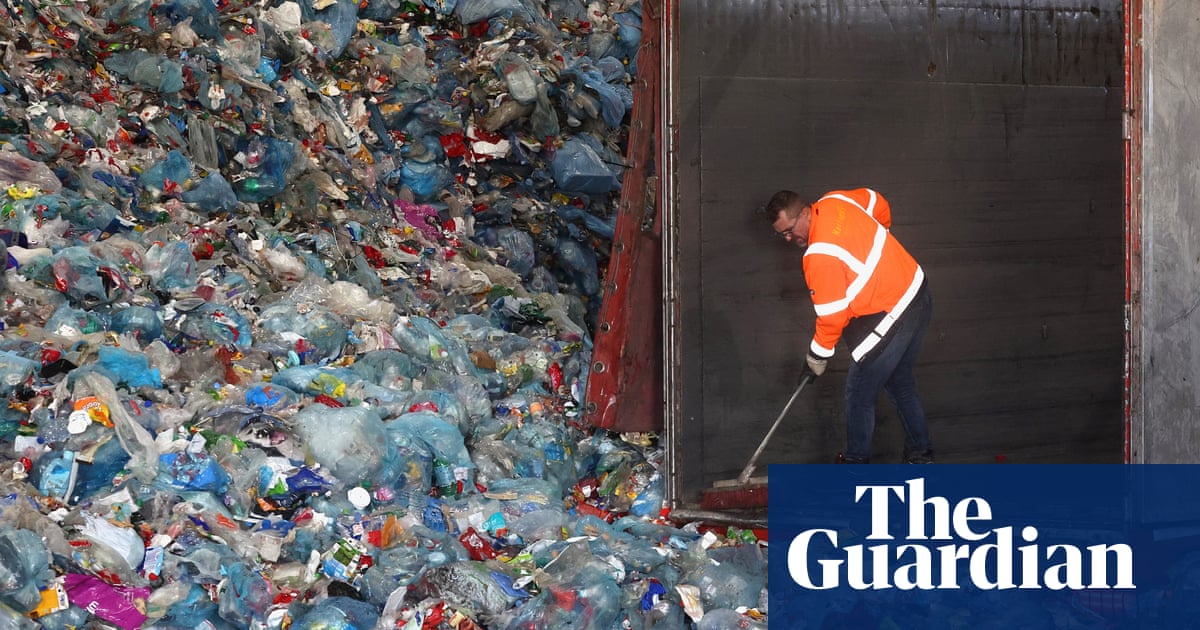Global recycling rates are failing to keep pace with a culture focused on infinite economic growth and consumerism, with the proportion of recycled materials re-entering supply chains falling for the eighth year running, according to a new report.
Only 6.9% of the 106bn tonnes of materials used annually by the global economy came from recycled sources, a 2.2 percentage point drop since 2015, researchers from the Circle Economy thinktank found.
The problem is systemic, they say: the rise in consumption is even more rapid than the growth in global population, and although some companies are increasing the amount of recycled material they use, the majority ignore the issue with no apparent penalties. This means that societies generate more waste than recycling systems can handle.
Even if all recyclable goods were recycled, which is unlikely as many goods are simply too difficult or costly to recycle, global recycling rates would only reach 25%, meaning that consumption must be slashed in order to tackle a growing global waste crisis.
Ivonne Bojoh, chief executive of Circle Economy, said: ‘‘Our analysis is clear: even in the ideal world, we cannot solve the triple planetary crisis by mere recycling. The much-needed systemic change requires fundamental change.
“This means unlocking circular potential in stocks like buildings and infrastructure, managing biomass sustainably and stopping sending perfectly renewable materials to landfills.
“This change doesn’t happen outside ourselves. We all need to make different choices, be bold, and invest to implement circular solutions across value chains.”
As many consumers can attest, recycling levels have been increasing in recent years. From 2018 to 2021, the use of recycled materials used in manufacturing has also increased by 200m tonnes, thanks to increasing awareness. But this increase has been outpaced by the growth in use of virgin materials, the researchers found.
They cited figures showing that global extraction of raw materials has more than tripled in the past half century, recently reaching 100bn tonnes a year – a figure expected to rise by a further 60% by 2060, unless action is taken.
Sign up toDown to Earth
The planet's most important stories. Get all the week's environment news - the good, the bad and the essential
after newsletter promotion
The global per capita consumption grew from 8.4 tonnes in 1970 to 12.2 tonnes in 2020, but this increase has not been evenly distributed, with citizens of higher-income countries consuming six times as much as those from lower-income countries – 24 tonnes compared with 4 tonnes.
This leads to a stark inequality, with the EU and US alone consuming more than half the world’s materials despite comprising just 10% of the world’s population between them.
The report calls for the establishment of global circular economy targets to lower material use and energy demand alongside increasing recycling rates. It calls for the introduction of an “International Materials Agency”, along the lines of the International Energy Agency, to guide governments in measuring and monitoring sustainable resource use and circular economy progress.
“The shift to a circular economy cannot happen without the right policy environment and government action that phases out wasteful practices and promotes and supports smarter ways of meeting people’s needs,” the report says.
